[Herald Interview] Korean 'changgeuk' meets Peking opera
'Farewell My Concubine' blends traditions in spectacular revival
By Hwang Dong-heePublished : Nov. 9, 2023 - 19:31
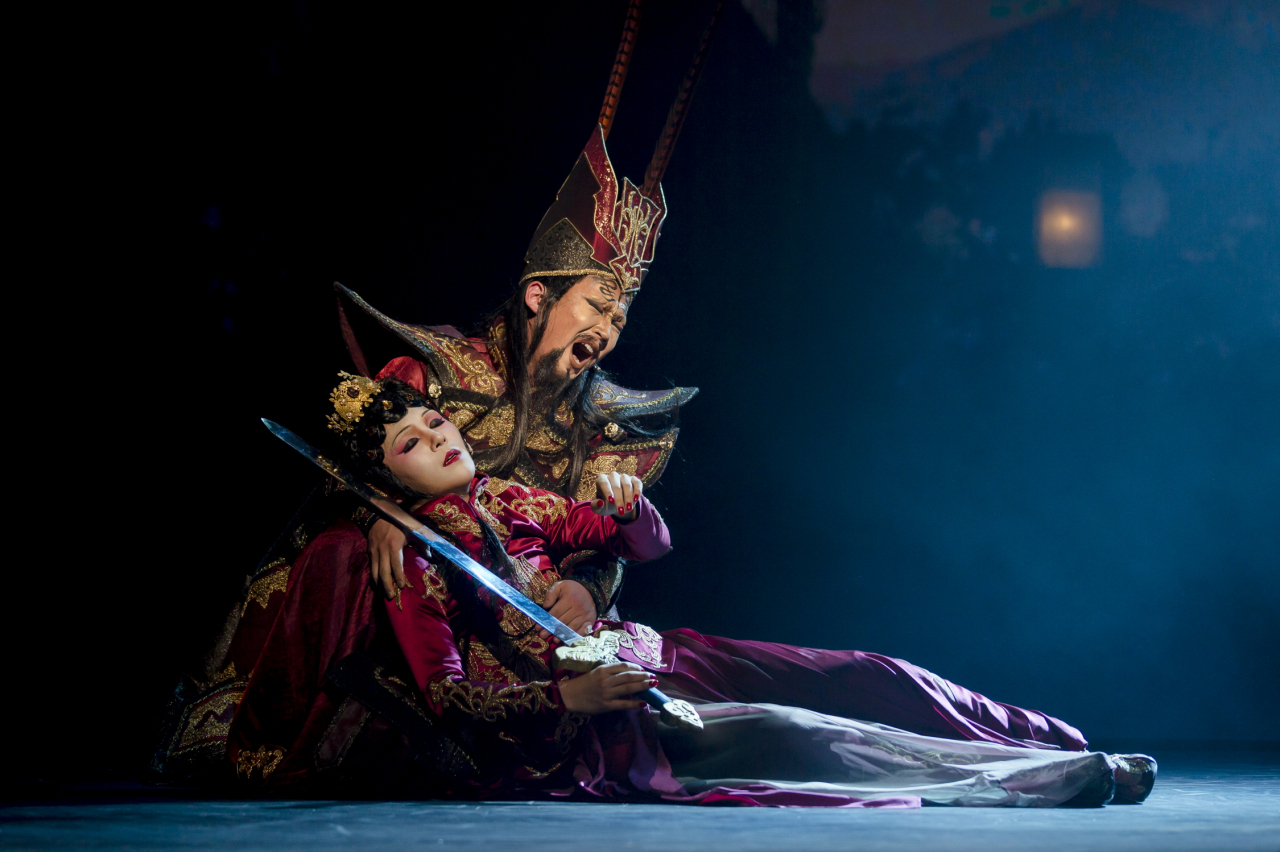
The National Changgeuk Company of Korea is making a grand return to the stage with one of its most most unconventional repertoires, "Farewell My Concubine.”
Premiered in the spring of 2019 and met with sold-out shows during its fall run, this "changgeuk" is a blend of traditional Korean and Peking operas, brought to life through the collaborative efforts of creative teams from Korea and Taiwan.
Set in the turbulent Spring and Autumn Period in ancient China, "Farewell My Concubine" tells the epic tale of war interwoven with the poignant love story of Gen. Hang Woo (Gen. Xiang Wu) and Woo Hee (Consort Yu).
Changgeuk actors and pansori singers Jeong Bo-gwon and Kim Jun-soo, reprising their roles as Hang Woo and Woo Hee, respectively, are approaching their characters with fresh determination.
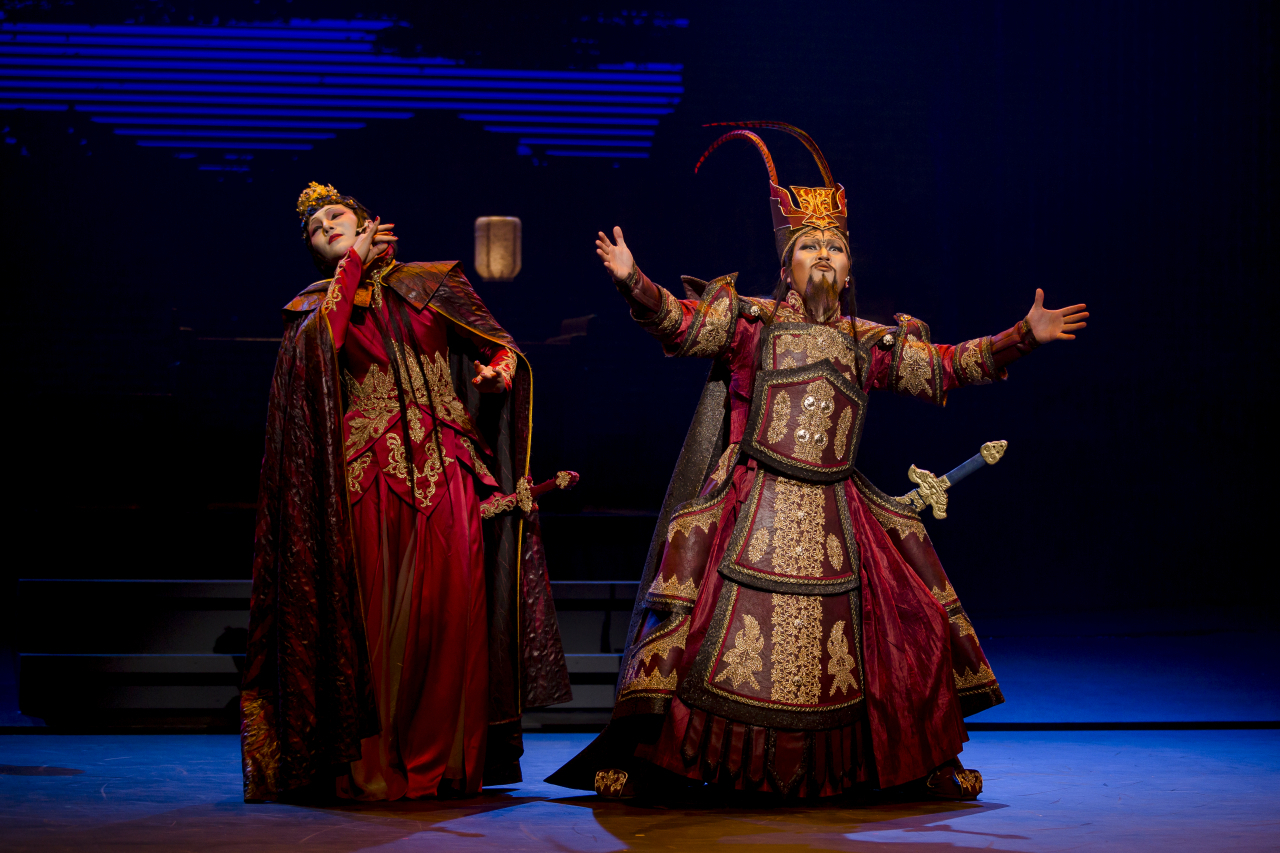
"We are delving into the depths of our emotions and studying our past performances as well. The director told us to focus on the moments of emotion,” said Kim in an interview with The Korea Herald on Wednesday.
“I'm concentrating on acting as if I were really in that moment for the first time.”
Director Wu Hsing-kuo from Taiwan, with 50 years of experience as an actor, is known for his fusion of Peking opera and contemporary theater.
Jeong, who is joining the troupe as a guest performer, said he is thrilled to make his Haeoreum Theater debut.
“I've heard that during our performances four years ago, the stages (Daloreum Theater and CJ Towol Theater) felt small for the story because the costumes and the scenes are so epic and grand,” said Jeong.
“With a larger stage, the actors have more space to express their movements, like in the war sequences. I think the audience will (be able to experience) a more immersive and dynamic stage."
Seven actors were added to the cast for this year's performance, bringing the total to 47, and more musical instruments and players have been added as well.
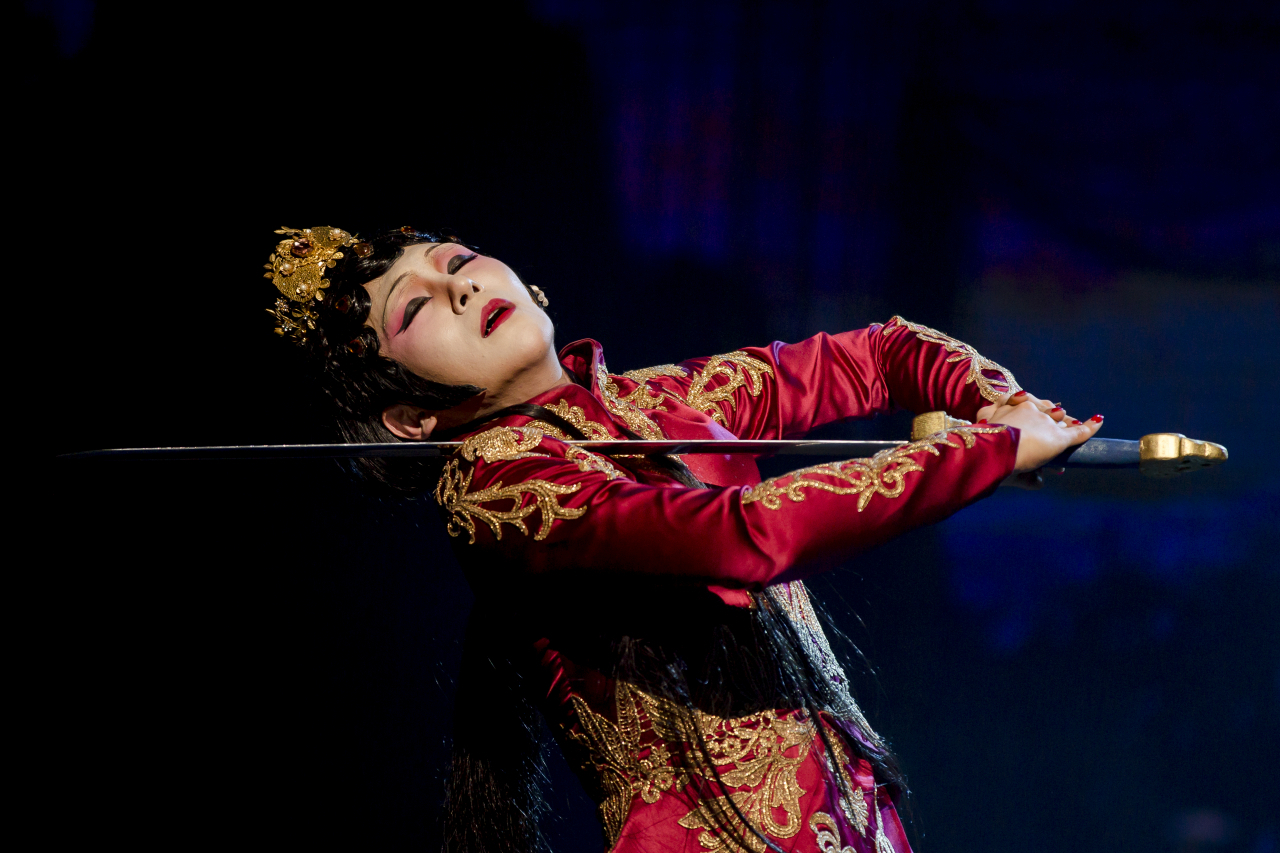
The production emphasizes both the visual and auditory aspects of the performance.
The actors have invested considerable effort into mastering the unfamiliar gestures and movements of Peking opera. The character of Woo Hee, characterized by her delicate and graceful demeanor, has demanded particular attention.
"To capture the essence of Woo Hee, I've focused on conveying her detailed and flexible gestures, especially through my hands and body movements,” said Kim.
“It has been quite challenging, but I’m wearing a dress (during practices) to get used to the female costume and embody the soft, delicate demeanor."
Kim also performs the "double sword dance," a highlight of the show where he dances a challenging choreography wielding two long blades. There's a moment where he bends his waist almost 90 degrees backward, adding an extra layer of complexity to the performance.
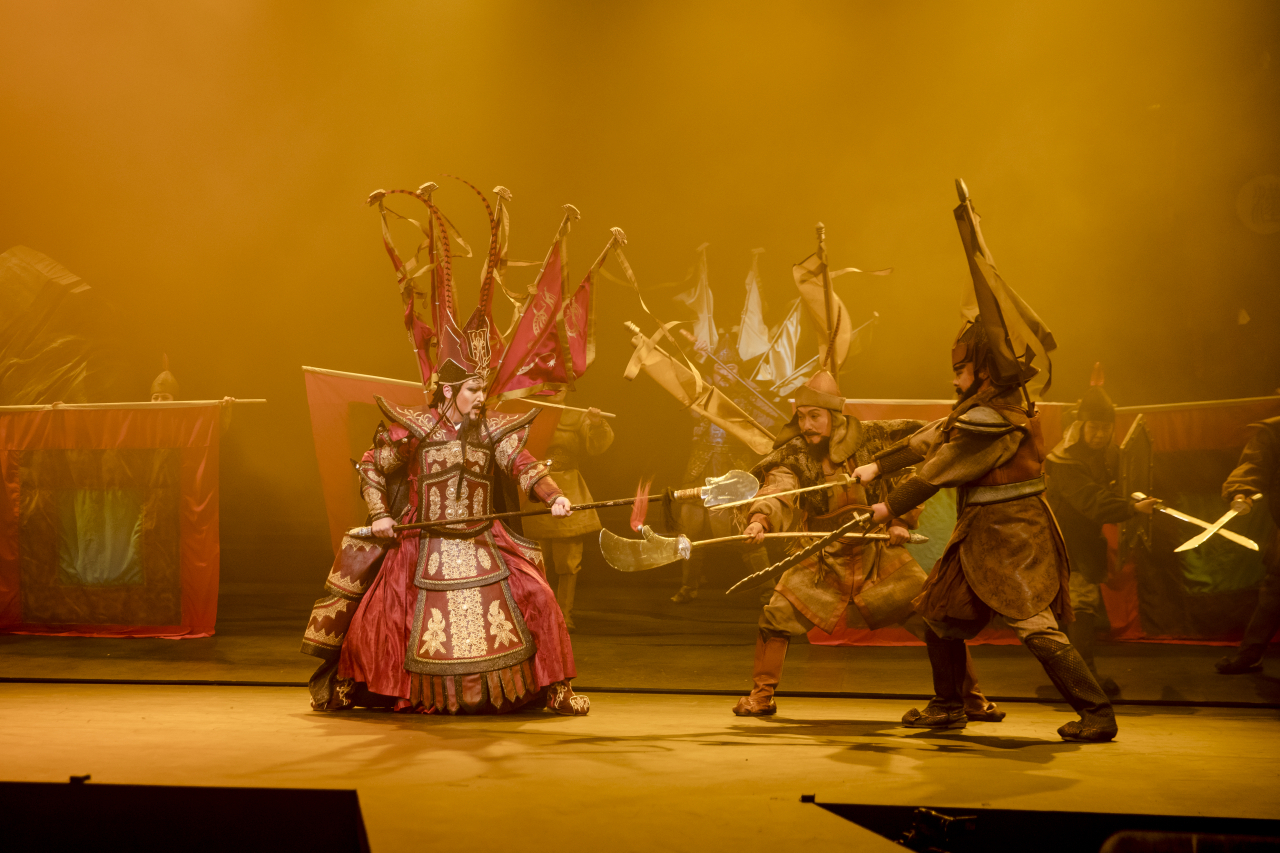
In contrast, Jeong, who takes on the role of the formidable general, emphasized the need to exude strength through his movements and dialogue, maintaining a constant state of readiness.
The 10-kilogram costume, with five to six iron flags on the back and a broadsword, presents an additional challenge, especially during the intense battle scenes.
"(After each practice), my fellow performers often joke that I've taken a shower in sweat. But it's fun because we usually don't use our bodies so much," added Jeong.
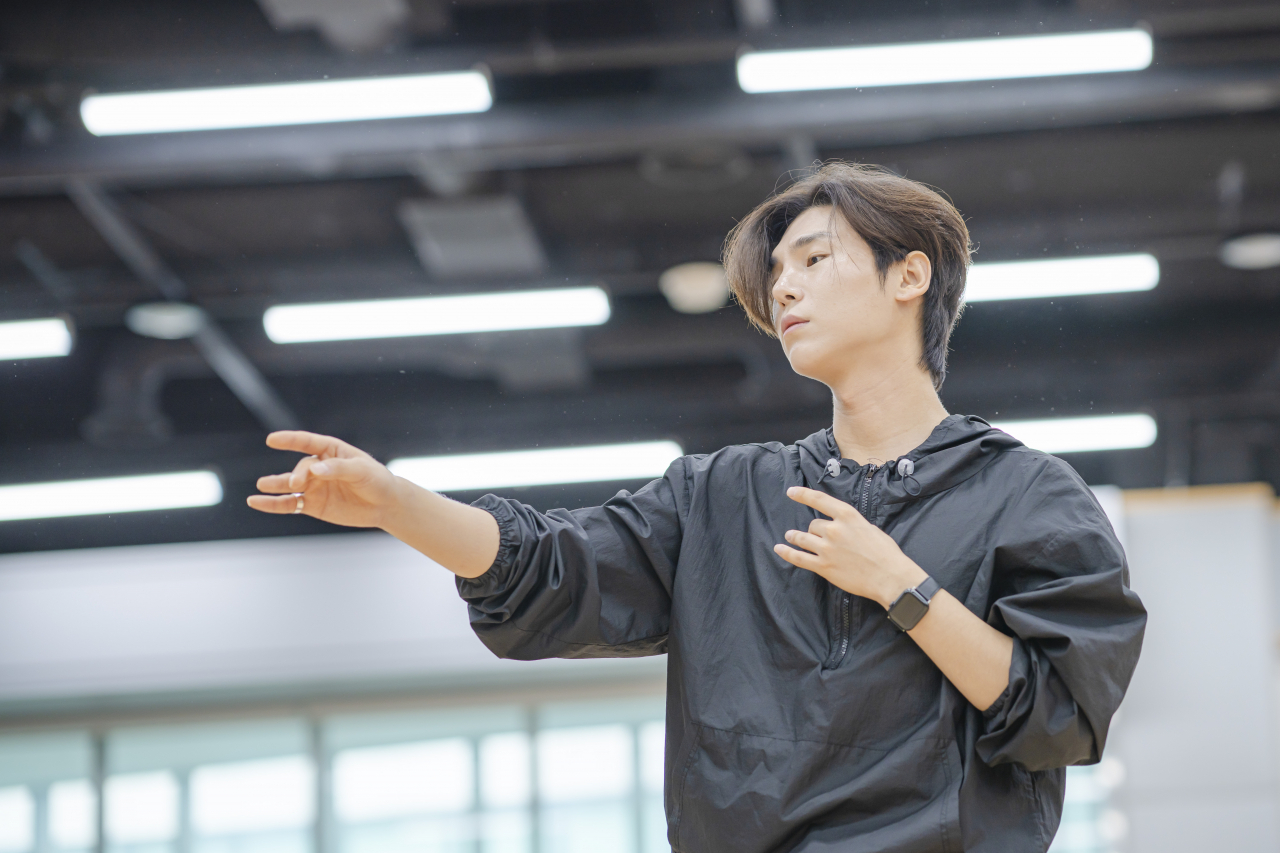
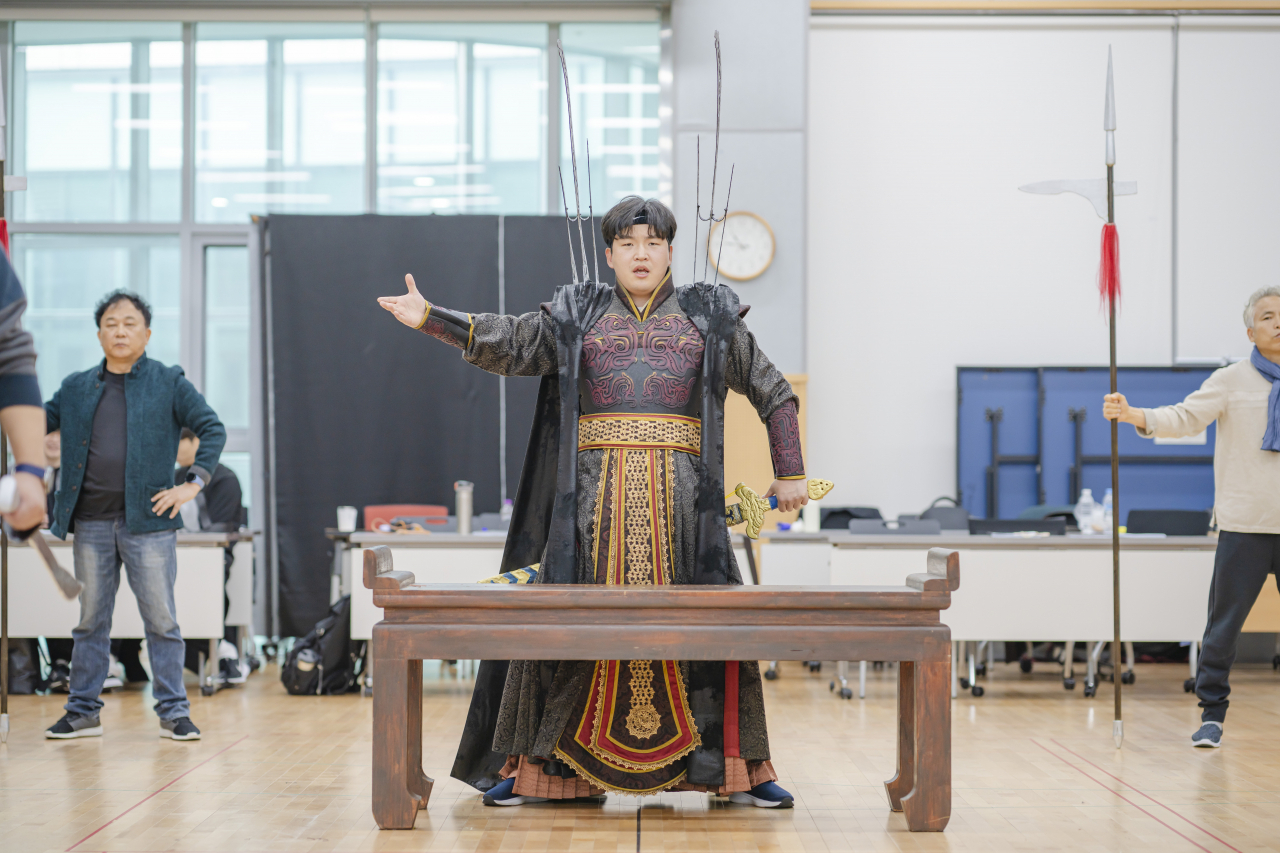
While the new production maintains the original aesthetic of the Peking opera, even its tradition of a male actor taking on a female role, the cast said their voices carry the essence of "pansori," the traditional Korean narrative singing.
Kim, a star pansori singer who often appears in popular changgeuk productions, similar to the musical genre based on traditional Korean music and dance, said even though it is a female character, it does not mean that he will sing in a female voice.
“We (and the production team) agreed that it is important to convey the singing in our authentic voices (in pansori singing style)," said Kim.
"In fact, I have a more masculine tone as a pansori singer, and I tend to favor energetic voices on stage. But Woo Hee is the most feminine role I've undertaken, so I'm trying to bring out the softness within my voice."
The artistic ensemble also includes prominent pansori singer and composer Lee Ja-ram and Oscar-winning costume designer Tim Yip from Hong Kong.
"Farewell My Concubine" opens Saturday and runs until Nov. 18.







![[Weekender] How DDP emerged as an icon of Seoul](http://res.heraldm.com/phpwas/restmb_idxmake.php?idx=644&simg=/content/image/2024/04/25/20240425050915_0.jpg&u=)

![[Herald Interview] Guggenheim Museum makes a push for technology-based art with LG](http://res.heraldm.com/phpwas/restmb_idxmake.php?idx=644&simg=/content/image/2024/04/26/20240426050608_0.jpg&u=20240428114717)


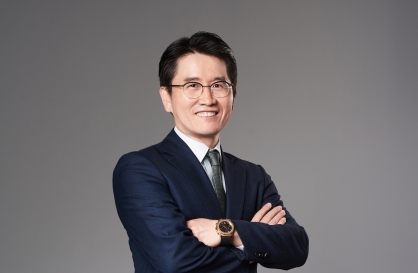






![[Herald Interview] Mistakes turn into blessings in street performance, director says](http://res.heraldm.com/phpwas/restmb_idxmake.php?idx=652&simg=/content/image/2024/04/28/20240428050150_0.jpg&u=20240428174656)
